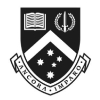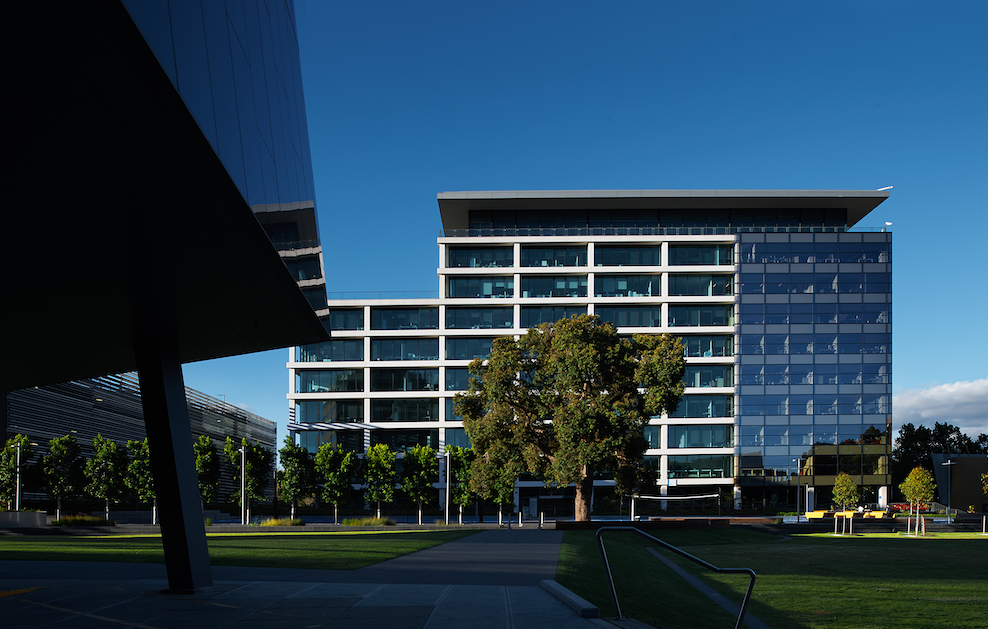Wellington Road, Clayton VIC 3800, Australia
Career Counselling

Monash University is located in Melbourne, in the state of Victoria, Australia. It is the second oldest university in Victoria, and has more students enrolled than any other Australian institution of higher learning, with almost 86,000 students, of whom 30,000 are international, and over 10,000 study on offshore campuses.
The University has a total of eight campuses, with six located in Australia and one each in Malaysia and Indonesia. The oldest and largest campus is at Clayton; it houses eight Faculties, research centres, and sports venues. The othe...
| Establishment year | 1958 |
| Total Students | 85,924 (2020) |
| International Students | 29,912 (international) + 10,530 (offshore); 2020 |
| QS World University Rankings 2024 | 42 |
| Campus Size | N/A |
| Total Number of Campuses | 6 (Australia) + 1 (Malaysia) + 1 (Indonesia) |
| University Website | https://www.monash.edu/ |
| No. of Schools and Divisions | 10 Faculties (Art, Design and Architecture, Arts, Business and Economics, Education, Engineering, Information Technology, Law, Medicine, Nursing and Health Sciences, Pharmacy and Pharmaceutical Sciences, Science) |
| Nobel Prize Winner Alumni | 0 |
| No. of Education Programs | 143 (undergraduate), 176 (postgraduate) |
| Student to Faculty ratio | 10.3:1 |
Monash University offers undergraduate and postgraduate courses through 10 Faculties, which are further subdivided into schools, departments, institutes, and research centres.
Undergraduate applicants to Monash University must meet the minimum entry requirements outlined below. Some courses may mandate higher standards of performance than these, or additional rounds like an interview
Postgraduate applicants must satisfy the following eligibility criteria:
Domestic applicants to undergraduate courses at Monash University must submit their applications through the Victorian Tertiary Admissions Centre (VTAC). Deadlines usually close in late September every year for Semester 1. Candidates must enter their personal details and academic record and attach any additional documents, like a portfolio, that specific courses might require.
Domestic postgraduate applicants must submit their applications directly to the University. This is done through the Monash application portal. Candidates should keep the following information and documents ready: course code and name, the campus, and scans of the required documents specified on the course page.
International applicants to both undergraduate and postgraduate courses at Monash follow a direct process that is similar to that for domestic postgraduate candidates, with three important differences: English language test scores must be submitted as part of the application, a certified copy of the passport must be uploaded, and an application fee of $100 must be paid.
Undergraduate domestic students who are in Commonwealth Supported Place (CSP) degrees at Monash pay a lower tuition fee (the student contribution amount). For example, the student contribution amounts for popular degrees are as follows: $13,500 per year for the Bachelor of Arts degree, $15,142 annually for the Bachelor of Business degree, and $7,500 for the Bachelor of Engineering program.
International UG students at Monash pay substantially higher fees: for example, the annual Bachelor of Arts tuition fee is $36,500; it is $49,200 for the Bachelor of Business degree; and it is $50,200 for the Bachelor of Engineering degree.
Postgraduate degree fees are relatively close to each other for domestic and international students for most courses, though CSP subsidies by the Government of Australia can reduce the domestic fees substantially. For example, the MBA degree charges domestic students $36,500, and international students $50,000. There can also be large differences: the Master of Artificial Intelligence program has an annual tuition fee of $8,000 for domestic students and $46,700 for international students.
Students also need to pay a variable Student Services and Amenities Fee; in 2023, the maximum amount charged to this head is $326. All students will need to budget for living costs (accommodation, food, personal items, and travel): the University estimates that these could go up to $20,000 per year, on average.

Monash University has eight campuses worldwide, with six in Australia, one in Malaysia, and one in Indonesia. The Clayton campus in Melbourne was the first, and is still the largest of all six campuses. A mini-city, it contains academic buildings, shopping centres, cafes, restaurants, and entertainment options. The second largest Caulfield campus conducts teaching and research from five Faculties. The Parkville campus is located next to a National Park. The Peninsula Campus is the third largest location, and is located 55 km from the city centre. 750 Collins Street is an ultramodern campus located in the heart of Melbourne. The Monash Law City Campus is in the centre of the legal district of Melbourne. The Malaysia campus of Monash University is home to over 7,000 students. A new campus is slated to open in Indonesia, and the university has three research partnerships with universities in China, India, and Italy.
Monash Sport coordinates all sports venues, clubs, fixtures, and fitness facilities and classes at all levels, from interested newbies to elite athletes. Sports clubs make up almost 20% of the 230+ student associations on campus, and provide the best opportunity for students to hone their skills at a particular sport over the course of a few semesters. The most accomplished athletes can represent Monash at every level of competition: the Big Blue Varsity Challenge, the Uni Nationals and the World Uni Championships.

Each of the Clayton, Caulfield, and Peninsula campuses contains a Health and Fitness Centre: These allow students with memberships to use the gym, exercise equipment, and running facilities seven days per week. The pools at these facilities allow beginners to learn from qualified instructors and veterans to improve their lap times. The sporting facilities at each campus provide courts that can be hired on demand. A full timetable is available for Group Fitness classes: from Pilates to Swim Fit and meditation.
The Monash Career Centre gets students at the University ready for their chosen career paths, and helps them find and secure the right role. A unique feature is the blend of automated (hundreds of eLearning tools that help optimise resumes, prepare for interviews, and build up professional profiles) and in person guidance, advice, and coaching interventions. The main functions of the Career Centre are information (about career paths for each degree), optimisation (resume builders and interview simulator tools), preparation (through panels of qualified career advisors), and connection (by setting up job and internship interviews and global job databases).
The high cost of education at Monash University, particularly for international students, makes it necessary to have a robust financial aid package, and the university maintains a detailed database of all scholarships offered, with eligibility criteria, award amounts, application pathways, and deadlines.
The flagship scholarship awards are the Sir John Monash Scholarships for Excellence. These are awarded to 10 international students who completed their Year 12 examinations in Australia, and entail a financial award of $10,000 per year of the degree, paid towards tuition fees. They are awarded based on academic merit, and applicants are automatically considered based on their Year 12 marks.
Over 70 scholarships are open to International students at the University of Monash. Notable scholarships with high award amounts include the Engineering Masters Pathway Scholarship, awarded to ten overseas entrants to the Bachelor of Engineering course and worth up to $30,000, and the co-funded Monash Graduate Scholarship, worth up to $33,000.
